6 simple mistakes you're making with powder detergent in your laundry – and how to fix them
Laundry experts share advice on getting the most out of your power

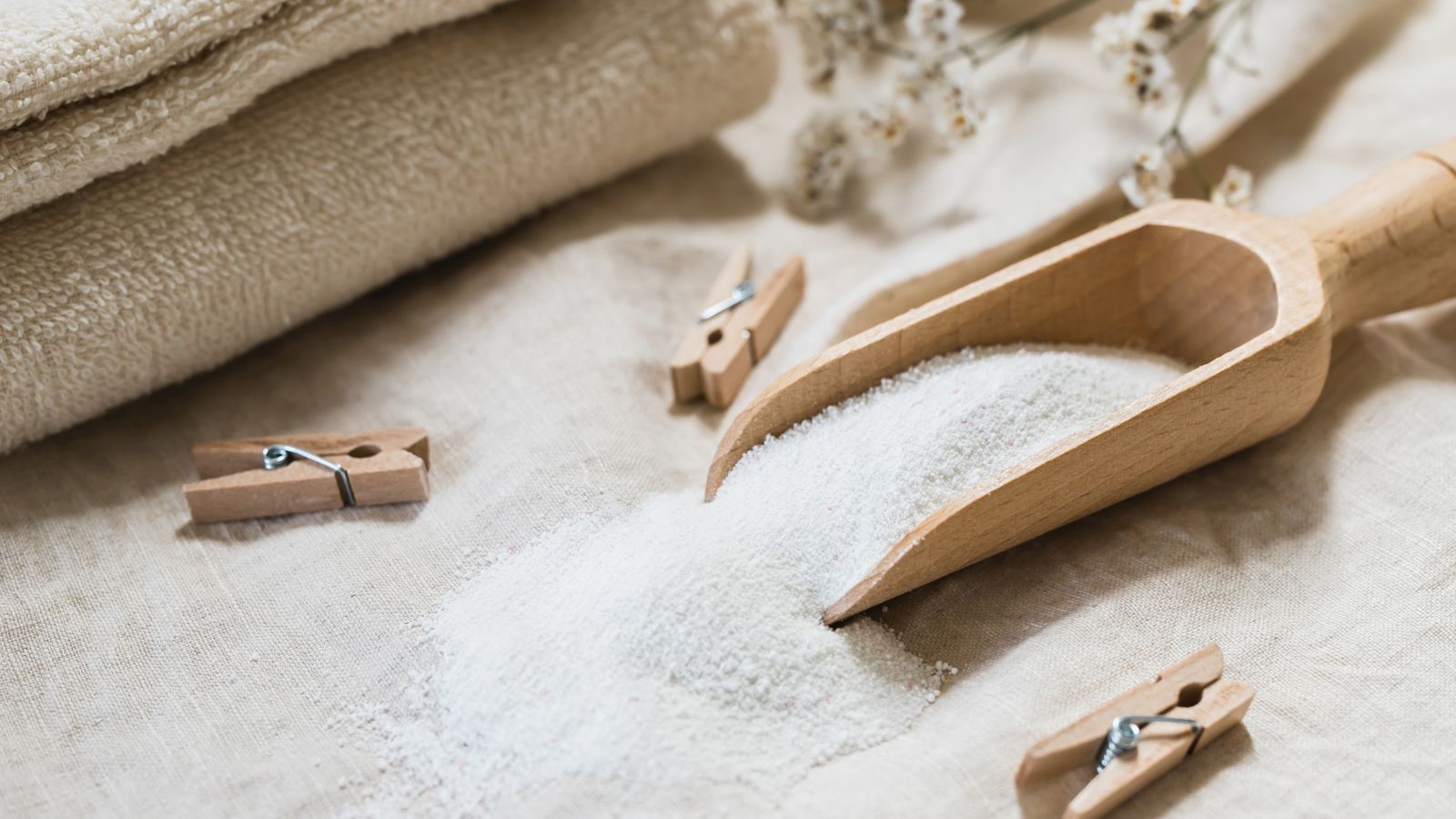
Tried and true, powdered laundry detergent is a stead-fast, reliable option for cleaning laundry, but do you know the common mistakes you're probably making when using it?
Our laundry pros have revealed the six powder bloopers they see going on in people's laundry rooms, including using too much detergent, and powder that's too old.
To optimize how you do laundry using powdered detergent, our experts share how to fix or avoid these errors, and reduce waste, too.
7 mistakes you're making with powdered laundry detergent
1. Using too much
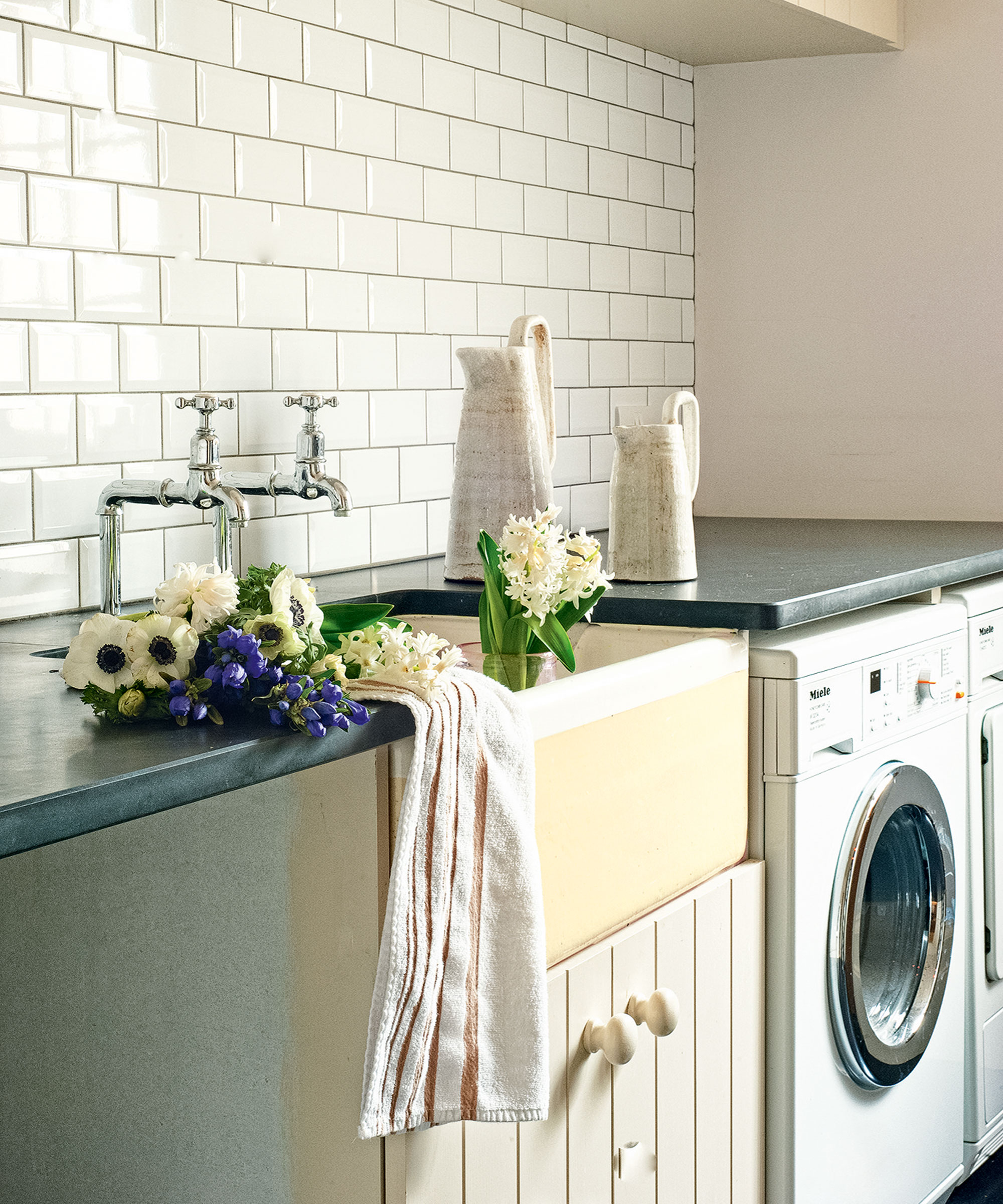
The most common mistake our pros see with powder detergent is using too much. While they come instructions on how much to use for different sized loads, it can still be confusing and vague, especially when the box comes with a scoop. The temptation is to fill it to the top, but using too much powder detergent can leave residue on clothes.
Known as the “Laundry Lady,” Hyacinth Tucker, CEO of the Laundry Basket, a top laundry service in Maryland, says, ‘As someone who has spent years in the laundry business, I’ve seen plenty of detergent disasters. One big mistake is using too much powder – you might think that more detergent means cleaner clothes, but it actually makes them rough and faded.’
Using too much detergent can also clog up your washing machine, causing it to work harder, which is never a good thing for your clothes or your energy bill. Instead, avoid this laundry mistake with a 'less is more approach'.
Having detergent stains on clothes can also lead to skin-itching, especially if the powder you typically use isn't made for sensitive skin. We like the Molly Sud's Laundry Powder available at Walmart, as it's unscented and formulated specially for sensitive skin.
Design expertise in your inbox – from inspiring decorating ideas and beautiful celebrity homes to practical gardening advice and shopping round-ups.
2. Using old detergent

'Powder detergents have a shelf life and lose potency over time,' says Austin Jones, CEO at Millennium Facility Services, a leading janitorial services company with over 30 years experience. 'For best results, buy smaller containers you'll use within a season.'
If stored properly, in a cool, dry place, your detergent should last between six months and a year, giving you ample time to use it. However, if you notice clumping, or your powder detergent turning brown, Jones recommends replacing it immediately.
3. Skipping sanitizing
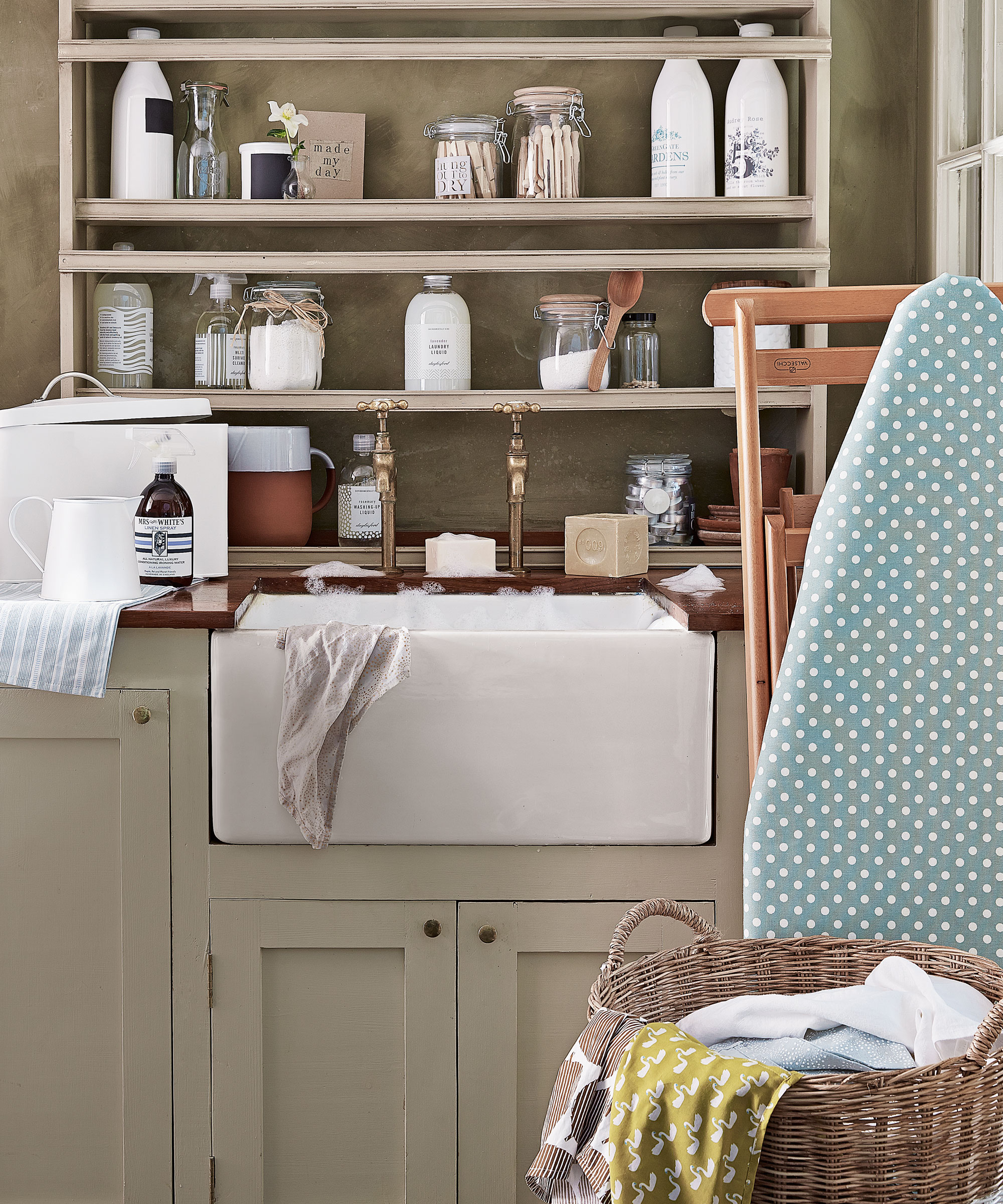
When doing laundry, it can be easy to forget about the need to sanitize. While washing with powder detergent kills most bacteria, some may still remain that could harbor illness or be the cause of bad odor residues. This is especially important when washing at low temperatures which are better for the environment, but not as effective at killing germs.
'An important step in your laundry routine is not just the washing, but sanitizing items,' says Nicole Lopez, R&D senior associate for R&D Operations NA, Hygiene at Reckitt. Lopez is responsible for implementing research and several initiatives for Lysol Laundry Sanitizer as a technical lead, so she knows a thing or two about the importance of it.
Lopez recommends using Lysol Laundry Sanitizer, available at Walmart in a crisp linen scent, which will kill 99.9% of unseen bacteria, leaving your laundry sanitized and smelling fresh.
'To sanitize, after inserting your powder detergent where indicated by your machine, add Lysol Laundry Sanitizer in the fabric softener compartment of your machine or put directly into your rinse cycle to kill bacteria,' she says. 'For standard machines, use two cap fulls filled to line one of the dosing cap, and for HE machines, use two cap fulls filled to line 2.'
4. Not cleaning your detergent drawer regularly
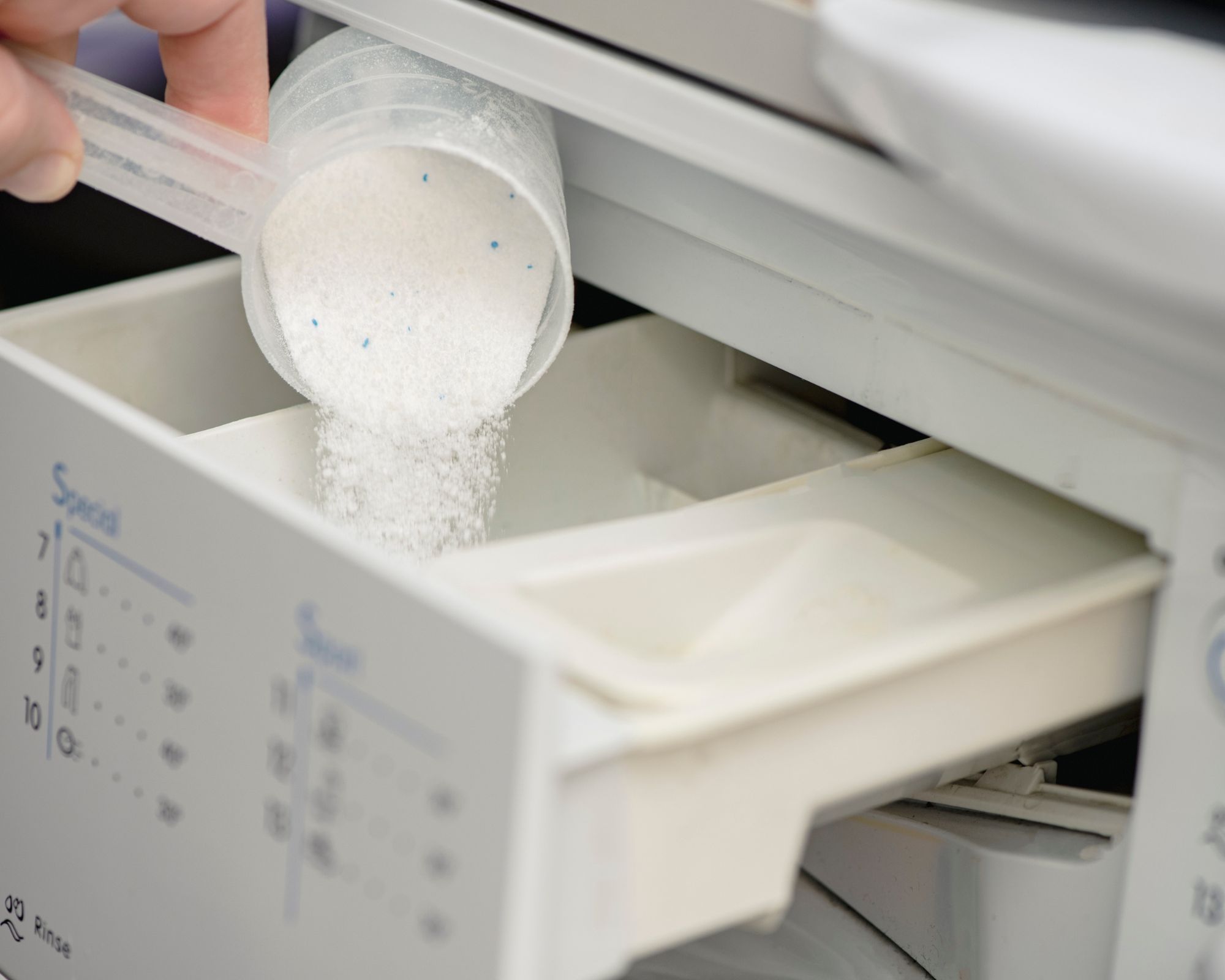
We know, another cleaning task to add to your list, but clean your laundry detergent drawer now and you will thank yourself when your clothes come out looking and smelling their best every time.
Drawers are prone to mold and mildew as they are closed off, dark and get wet at the back regularly: the perfect storm for mold. To avoid this washing machine mistakes, make sure you clean the drawer and section you pop your powder in so you don't end up with a washing machine that smells, and powder detergent that cannot clean effectively.
'Regularly clean the detergent drawer and drum to prevent build-up and maintain machine performance,' says Mick Jain, Operations Manager of VMAP Cleaning Services.
5. Not testing your water's alkalinity and pH

'Another mistake is not testing your water's alkalinity and pH first,' before washing, says Jones. 'Unbalanced water prevents detergents from working and requires more detergent. We test client water weekly to ensure proper pH and alkalinity for effectiveness.'
This can lead to you needing to use more powder detergent than necessary, driving up your grocery bill, leaving residue on clothes and wasting both water and energy having to re-wash items.
Taking time to check your water's pH can help ensure you use the correct powder detergent, and that it will work as effectively as possible. The Roslaen water and pH checker from Amazon is easy to use and highly rated by shoppers.
6. Not dissolving powder detergent properly in cold water
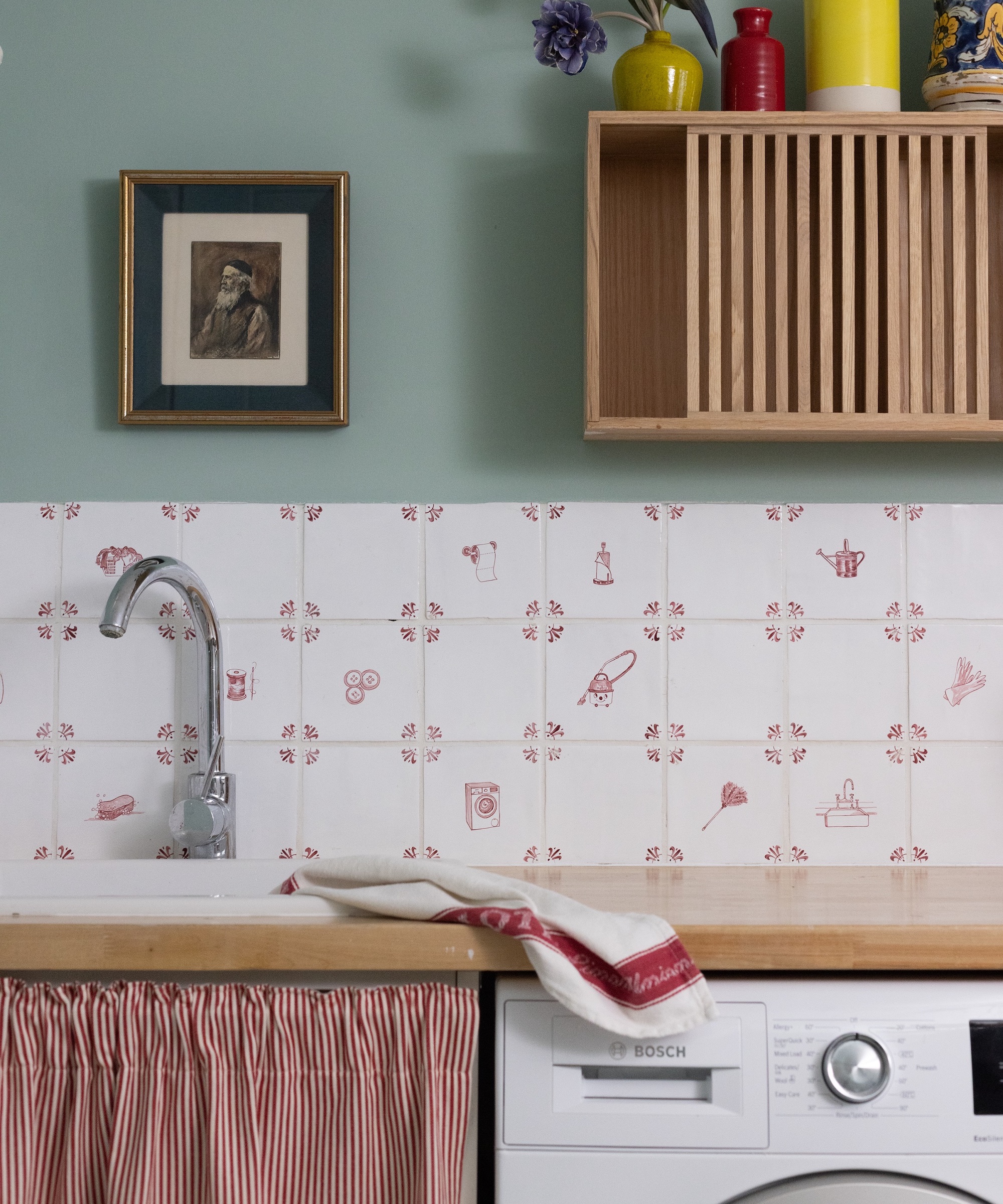
And finally, if you're washing with powder detergent, be sure to give it time to dissolve.
'If you're using powder detergent with cold water, make sure it dissolves properly,' says Tucker. 'Otherwise it can leave white white spots on your clothes. Just give it time to mix in before adding your clothes.'
We recommend ARM & HAMMER Powder Laundry Detergent, available at Walmart, as the bestselling formula uses baking soda to eliminate odors with a fresh, alpine clean scent.
FAQs
Can powder detergent damage your washing machine?
While detergent won't directly cause damage to your washing machine per se, regular care and maintenance needs to be carried out, as residue could be building up in places you can't see.
This could cause blockages to your machine, but taking precautions, such as not using too much detergent, is an easy way to prevent this from happening.
'Choosing between powder and liquid detergents can feel like picking between a rock and a hard place,' says Tucker. 'But here’s a tip: powders are great for getting rid of dirt, clay, and mud, while liquids are better for greasy stains and body oils. Always keep your detergent in a cool, dry spot to stop it from clumping and out of kids' reach.'
'Many people have switched from powders to liquids because they wear more dark clothes now, which need a detergent that tackles body oils and grease better. In the end, a little tweak in your laundry routine can lead to a much better clean. So remember, with detergent, less is more!'
This approach is also a great way to save money on your laundry routine, too.

Ottilie joined Homes & Gardens in 2024 as the News Writer on Solved, after finishing a Master's in Magazine Journalism at City, University of London. Now, as the Sleep Editor, she spends her days hunting deals and producing content on all things sleep – from mattresses and sheets to protectors and pillows, all of which she tests in her own home. She also has particular expertise in home fragrance, covering everything from candles to reed diffusers.
Previously, she has written for Livingetc and Motorsport Magazine, and also has a Master's degree in English Literature and History of Art from the University of Edinburgh, where she developed a love for inspiring interiors and architecture.